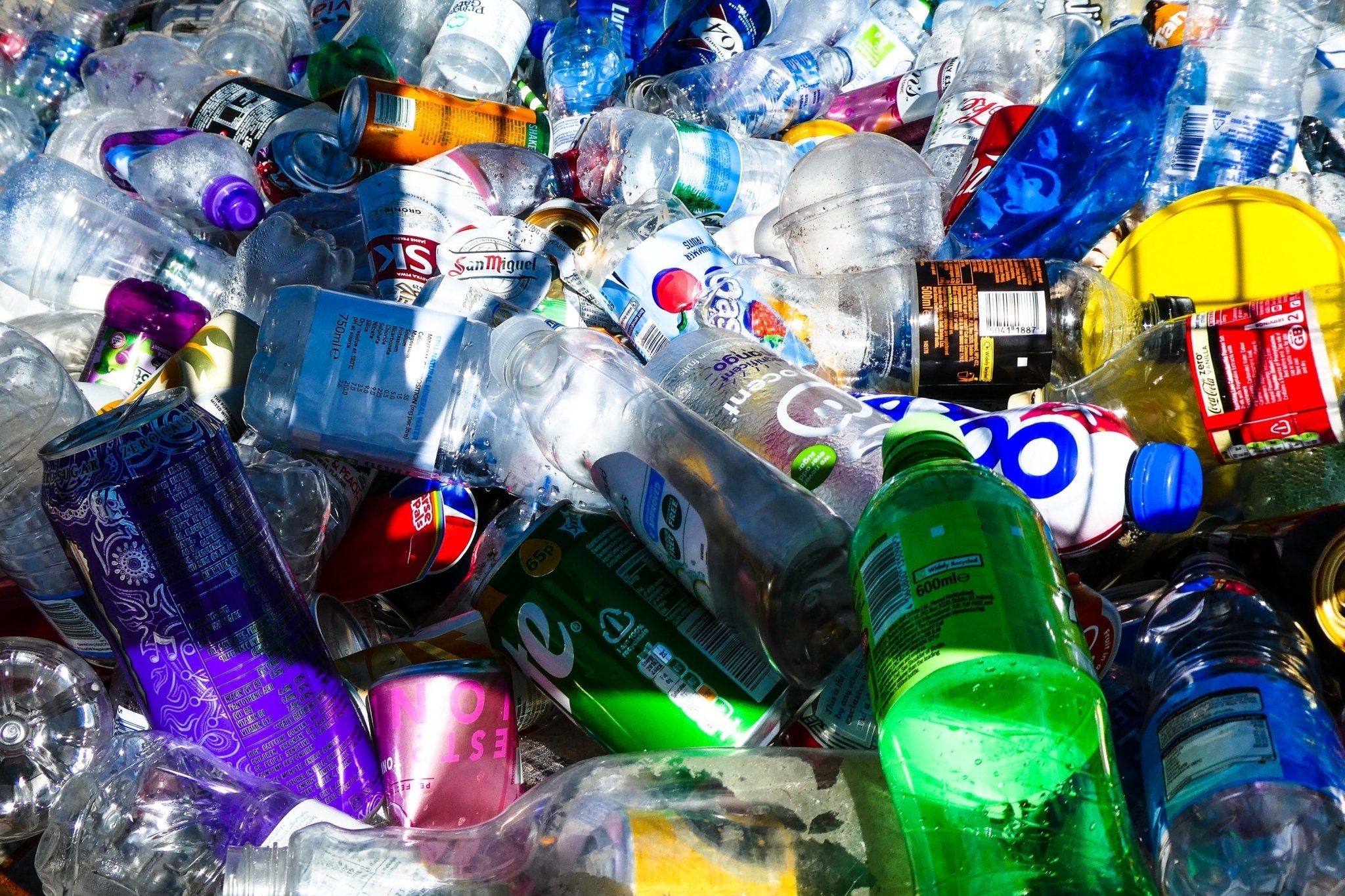
Plants over Plastic: Why we don't use recycled plastic bottles
These days there are so many ways for a brand to be sustainable - we know it can get confusing! While sustainability can mean so many things to so many people, we acknowledge that there is no one company that’s doing it all right. But at Reprise, we believe that one of the biggest climate issues that we face is plastic pollution so we’re doing everything we can to cut down on our plastic usage, recycled or not. Because of this, we wanted to share a few facts about recycled plastic bottles or recycled fishnets as fabric.
Recycled polyester has been around since the early 1990s, but it skyrocketed in popularity in the last few years due to some incredible marketing. However, the more that we’ve learned about this type of fabric, the more that we’ve had concerns. One of the initial concerns involves the major players behind the recycled plastic movement. REPREVE® fabric, one of the most popular brands of recycled polyester, is actually owned by Unifi, one of the largest producers of polyester and nylon in the world. So at the end of the day, the profits from these fabrics are still ending up in the hands of large corporations who rely on petroleum as their main input.
In addition to the connections to large oil-dependent companies, the process of creating recycled polyester fabric takes a previously circular supply chain and creates a linear one. Plastic bottles that were on their way to being recycled into more plastic bottles are now diverted into fashion. There is a small handful of companies who are exploring recycling clothing, however it is for such a small fraction of clothing it’s not enough to make a dent in the amount of clothing being produced each year. And when companies make blended fabrics like 50% cotton/50% recycled polyester this makes it even harder to recycle since you can’t “undo the recipe” to separate out the ingredients. Therefore, taking plastic bottles and turning them into clothes doesn’t save them from a landfill, it just prolongs the time until they do eventually end up there.
Another complication is that because fashion now demands all of the plastic bottle supply stream, prices for plastic bottles as a raw material have gone up, making it more expensive for big beverage brands that rely on recycled plastic for their products[1]. The supply quantity is already small due to the dismal recycling rates in the United States, but fashion is disrupting the supply chain because bottles can be continuously recycled into new plastic bottles, whereas clothing cannot.
We covered this in our post on microplastics, but recycled polyester clothing releases microplastics, the microscopic bits of plastic that shed from clothing when laundered that are ending up in our food and back into our bodies. Scientists have started to study the fact that recycled polyester fibers may also shed more microplastics than non-recycled fibers, due to the shortening of the fibers during the harsh chemical recycling process.
And finally, clothing made with plastic materials has been shown to test positive for BPA, a chemical ingredient in plastic that’s a known hormone disruptor and linked to cardiovascular disease.
This is why we prefer to use natural fibers for our activewear! Our main fabric is TENCEL™ - a tree-based fabric that carries certifications from OEKO TEX and Bluesign to ensure that our products have been tested for harmful substances to protect your health. And our fabric won’t release microplastics, just microfibers that biodegrade naturally since it comes from plants.
[1] https://www.fastcompany.com/90429087/recycled-plastic-isnt-going-to-save-us


